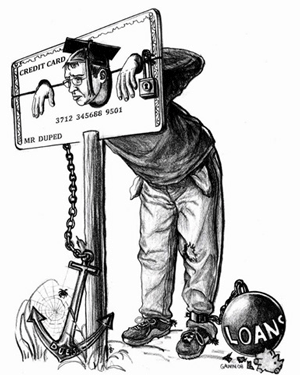#smarterspending
Explore tagged Tumblr posts
Photo

😱😱 Be smarter, Be wiser and remain humble #begreat #behumble #smarterspending #money #clothes #shoes #school #schoolloans #amess #yallcrazy #yafreakyboi #saturday #postivevibes #business #smart #peace #love #tranquility #livewithoutpermission #story #mythoughts #my2cents #silly https://www.instagram.com/p/B0_zKuuHrB4/?igshid=1jam9c5n4epm1
#begreat#behumble#smarterspending#money#clothes#shoes#school#schoolloans#amess#yallcrazy#yafreakyboi#saturday#postivevibes#business#smart#peace#love#tranquility#livewithoutpermission#story#mythoughts#my2cents#silly
0 notes
Text
Decision-Making for Millennials: A story about how we decide what to buy
“When you are 80 years old, and in a quiet moment of reflection narrating for only yourself the most personal version of your life story, the telling that will be most compact and meaningful will be the series of choices you have made. In the end, we are our choices.” — Jeff Bezos, 2010 Princeton University Commencement Address
A good way to understand the importance of our choices is with a story of millennials making decisions. This is a story about how my friend Rachel decided the watches she should buy.
It was 2015, Rachel was 26 and just started her financing business. She wanted to buy herself a watch to reward herself for turning in a good profit despite the European debt crisis.






She did her research by reading the fashion blogs, looked through some of the major fashion magazines and went to shopping malls to get a good sense of what she should buy. There are so many options to choose from.
She really liked the Armani brand and seen them everywhere, whether it’s Emporio Armani, Giorgio Armani or Armani Exchange. So she decided to get a watch from Armani at a budget of about S$1,000.
Rachel was absolutely convinced that it was the right choice:
Armani is a famous and trendy brand. Everyone knows Armani and it will reflect well on her stature.
The watches look expensive and classy.
It’s trendy and recommended by all the style experts.
All the boxes are checked, she thought.
Do you think it is a wise buy?
Based on her budget, would you have bought that watch?
What watch would you have bought instead? Share your thoughts and comment below.
If you like our content, Follow us and Join our community:
https://www.facebook.com/mzagreatwaytolive
0 notes
Text
Things that I want...that I probably won't be getting for awhile...
Peplum skirt/dress
Colored blazer (neon or pastel)
Rebecca Minkoff swing bag, to-die
Lots of shoes...red high-top Chucks (random, I know!), my Jeffrey flats again, some leopard flats/sandals...good lord
Amazing pink denim skirt from Nasty Gal, basically everything from Nasty Gal
I seriously have a shopping problem! I have pieces on hold and am still looking for new things to get. I really need to pace myself. I've still been really good at not just charging everything on my credit card. I can obviously easily do that, but then that would be considered a relapse from my "not charging on my credit cards," which is bad.
However, I did just charge Kullen's Burberry button-up on my Nordstrom card today. But come on, who's not gonna charge $143 for a dress-shirt? I'm not even sure he's gonna like it, but I thought it'd be nice for him to have for his new 9-5. I saw some cute and less in-your-face Burberry ones online, but I'm unsure what his sleeve length and all that crap is. But maybe I will end up ordering him something like that online, it's cheaper and it's less "flashy Burberry" which he actually might like better. But I guess we will see tomorrow when I give it to him.
Anyway, back to my smarter spending. I'm so bad at resisting spending on others, yet I can almost easily not spend money on myseld. So besides the newly-purchased Burberry dress-shirt, I have not charged my credit cards for anything and still believe in myself--I can totally just spend my own money sparingly, not charge things. I'm slowly but surely getting those credit card bills down, some minor bumps along the way that kinda put me off track (speeding ticket and trip to New York...), but that's life and shit happens. So I'm just gonna be careful with what I'm spending on and how often I'm spending. At least I've gotten to that point to where I'm actually worrying about what I'm buying instead of just buying every damn thing. That's pretty good for me, but I know I can do better and will do better! Because I sure as well do not want to be in credit card debt past this summer. I need to have my chase card paid off by the end of July which is definitely feasible, I'm pretty sure. I also want to have my Nordstrom card 75% paid off by the end of July which I believe in myself that I can do, as well. SELF-CONTROL. That's it, just some damn self-control.
I post way too much about my spending and expenses, it stresses me out. I am twenty years old. I should not be talking about money this much. But I guess by having everything written down, it makes me easier for me to realize that this is important and that I really need to be better with my money. Seeing everything in front of me makes me feel like I'm getting somewhere with it and makes me a little less flustered. Phew.
Goodnight. Interview at Saks tomorrow morning, gotta make sure I look rested and sassy.
Happy 22nd birthday to my betchhh, Audrey Pierce in about one minute.
0 notes
Text
Post 3: Lose Your Debt, Not Your Mind
“A man in debt is so far a slave” - Ralph Waldo Emerson

Based on a 2013 study at University of North Carolina:
“…high financial debt relative to available assets is associated with higher perceived stress and depression, worse self-reported general health, and higher diastolic blood pressure.”
This means if too much debt, it is likely that you will have poorer health. You might be more stressed out, lose sleep, and make poor and irrational decisions.
You will worry more about finding money to pay off debt especially if debt servicing takes up most of your income. It will leave you with lesser money to spend on a nice night out with your friends or even necessities like food and rent. What’s worse? If you fall short, the interest will snowball and there will be penalties. The debt will simply go out of control.
What Happens When Debt Stresses You Out?
When you’re stressed out, your amygdala, which controls emotions and motivation, sends signals to your hypothalamus, indicating that there’s something wrong. When your hypothalamus thinks there’s something wrong, it preps your body for fight or flight.
The hypothalamus calls up your adrenal glands to get the quick energy boost to physically fight or run away. These signals say, "We need adrenaline! Now!!!"
Adrenaline makes your heart pump faster, your lungs breathe deeper and release energy stores into your bloodstream. These are all very positive things if you need to run or fight, but you can’t actually punch debt in the face or physically run away from your debt.
Stress Damages Your Brain
The adrenaline didn’t resolve the source of your stress. When your brain continues to feel imminent danger, it sends a series of hormones on a journey through your pituitary glands into your adrenal glands, where cortisol is released to sustain high alert.
It is not easy to pay off a large amount of debt and we can experience financial stress for a prolonged period. Prolonged periods of heightened cortisol production are not good for the brain.
Elevated levels of cortisol—especially when sustained over a long period of time—can damage your brain. Your hippocampus takes the brunt of the damage. This portion of your brain is responsible for creating new neural pathways, but it can’t do that as effectively with high levels of cortisol.
Recent studies show that when your hippocampus is not working at full speed, your memory suffers. Synaptic plasticity—which enables you to learn new skills or coping mechanisms—goes down. This means you’re more likely to be in a foul mood, and making good decisions becomes harder.
Too Much Debt can Make You Dumber
A paper in Science in 2013 found that “a person’s cognitive function is diminished by the constant and all-consuming effort of coping with the immediate effects of having little money, such as scrounging to pay bills and cut costs.” The cognitive cost of poverty, that study found, was practically like losing an entire night of sleep.
Researchers said a study at the National University of Singapore looked at so-called “bandwidth taxes,” which are part of the reason some people stayed mired in poverty. “The demands of daily life under scarcity create ‘bandwidth taxes’ that sap mental resources, impairing cognitive ability and causing counterproductive behavior which perpetuates poverty,” the researchers wrote in the study, which was published in the Proceedings of the National Academy of Sciences of the United States of America.
‘Because debt impairs psychological functioning and decision-making, it would be extremely challenging for even the motivated and talented to escape poverty.’— Dr. Ong Qiyan, National University of Singapore
Another study from last year also found that people who had lived in poverty performed worse than those who had never been poor on tests of verbal memory, processing speed, and executive functioning.
Short-Term Thinking, Long-Term Unhappiness
When people live in “chronic scarcity” — meaning they lack sufficient money, housing and food to thrive — their brains become overtaxed because they’re coping with emergency after emergency.
Because those who are struggling with debt tend to think only about how to meet next month’s bills, they tend to think only in that time horizon in other areas of their lives.
The obvious ways include not even thinking about their retirement because they have no money now, so why contemplate your golden years without any money? They postpone their own medical care because they would go even deeper into debt.
All that short-term thinking leads them to live short-term. They don’t consider the future to be a happy place, so they live for now — even if it means sacrificing that future. They overeat. They drink too much. They don’t exercise. Their finances have affected their outlook on their health.
Short-term thinking and low-income parents might also inadvertently be harming the child. Parents may not even consider their children’s future, because they don’t want to confront the finances of it. According to one of the papers in the famous Dunedin Longitudinal Study, if the child is poor when they are young, she has an increased risk of substance dependence and poor physical health in adulthood.
Financial Freedom = Mental Illness Freedom?
The flip side of debt depression is financial freedom. We have seen the profound effects it has on the mental well-being of people who finally conquered their debts.
The study by the National University of Singapore found that getting rid of debt doesn’t just unburden finances, it takes a weight off the mind that clears up cognitive functioning, lessens anxiety and improves impulse control.
They found that the participants had experienced less anxiety and improved cognitive functioning, and they could make better financial decisions three months after receiving debt relief.
Getting out of debt can be difficult, especially with your brain often working against you as it tries to solve financial problems using a system that has been built to fight physical danger. But in the end, you are the master of your own mind.
In our next post, we will discuss why we get into debt and how can we fight debt.
What are the methods you use to reduce debt?
Share your thoughts and comment below.
0 notes